What Evidence Suggests That The Ocean Influences Climate Change?
Covering about seventy percent of the Globe's surface, the globe'south oceans accept a 2-manner human relationship with weather and climate. The oceans influence the weather on local to global scales, while changes in climate can fundamentally alter many properties of the oceans. This affiliate examines how some of these of import characteristics of the oceans accept changed over fourth dimension.
Why does information technology matter?
As greenhouse gases trap more than energy from the sun, the oceans are absorbing more heat, resulting in an increase in bounding main surface temperatures and ascension sea level. Changes in ocean temperatures and currents brought near by climatic change will lead to alterations in climate patterns around the world. For case, warmer waters may promote the development of stronger storms in the tropics, which tin cause property damage and loss of life. The impacts associated with body of water level rise and stronger tempest surges are especially relevant to coastal communities.
Although the oceans aid reduce climate change by storing large amounts of carbon dioxide, increasing levels of dissolved carbon are changing the chemistry of seawater and making it more acidic. Increased ocean acidity makes it more than difficult for certain organisms, such as corals and shellfish, to build their skeletons and shells. These effects, in turn, could substantially alter the biodiversity and productivity of body of water ecosystems.
Changes in ocean systems more often than not occur over much longer time periods than in the atmosphere, where storms tin grade and misemploy in a unmarried day. Interactions between the oceans and atmosphere occur slowly over many months to years, and so does the movement of h2o inside the oceans, including the mixing of deep and shallow waters. Thus, trends can persist for decades, centuries, or longer. For this reason, even if greenhouse gas emissions were stabilized tomorrow, information technology would take many more years—decades to centuries—for the oceans to conform to changes in the atmosphere and the climate that have already occurred.
Summary of Key Points
- Body of water Heat.Four contained analyses show that the corporeality of heat stored in the ocean has increased substantially since the 1950s. Ocean heat content non only determines bounding main surface temperature, just too affects ocean level and currents.
- Sea Surface Temperature. Ocean surface temperatures increased around the world during the 20thursday century. Even with some year-to-yr variation, the overall increase is clear, and ocean surface temperatures have been consistently college during the past 3 decades than at any other time since reliable observations began in the late 1800s.
- Sea Level. When averaged over all of the world's oceans, body of water level has risen at a rate of roughly six-tenths of an inch per decade since 1880. The rate of increase has accelerated in contempo years to more an inch per decade. Changes in sea level relative to the state vary by region. Along the U.S. coastline, sea level has risen the most along the Mid-Atlantic coast and parts of the Gulf coast, where several stations registered increases of more 8 inches between 1960 and 2020. Sea level has decreased relative to the land in parts of Alaska and the Pacific Northwest.
- A Closer Expect: Land Loss Along the Atlantic Coast. Equally ocean level rises, dry state and wetlands tin can turn into open water. Along many parts of the Atlantic declension, this problem is made worse by low elevations and land that is already sinking. Between 1996 and 2011, the coastline from Florida to New York lost more land than information technology gained.
- Coastal Flooding. Flooding is becoming more frequent along the U.South. coastline as sea level rises. Every site measured has experienced an increase in littoral flooding since the 1950s. The rate is accelerating at about locations along the East and Gulf coasts. The East Coast suffers the virtually frequent littoral flooding and has mostly experienced the largest increases in the number of flood days.
- Ocean Acidity. The ocean has get more than acidic over the past few decades because of increased levels of atmospheric carbon dioxide, which dissolves in the water. College acidity affects the remainder of minerals in the water, which can make it more than difficult for sure marine animals to build their protective skeletons or shells.
Source: https://www.epa.gov/climate-indicators/oceans
Posted by: liddellpacconte.blogspot.com


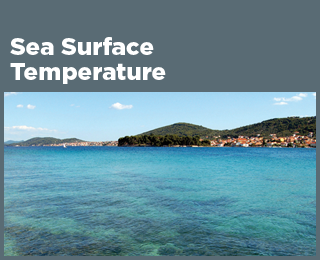
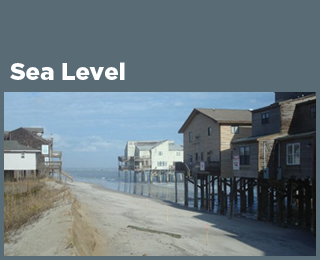
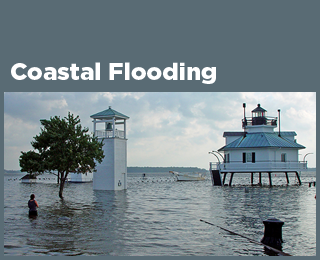
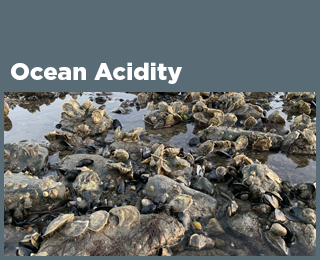
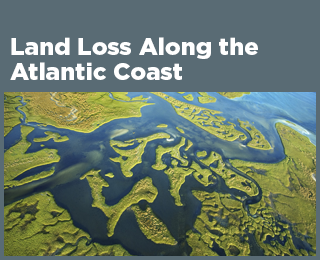

0 Response to "What Evidence Suggests That The Ocean Influences Climate Change?"
Post a Comment